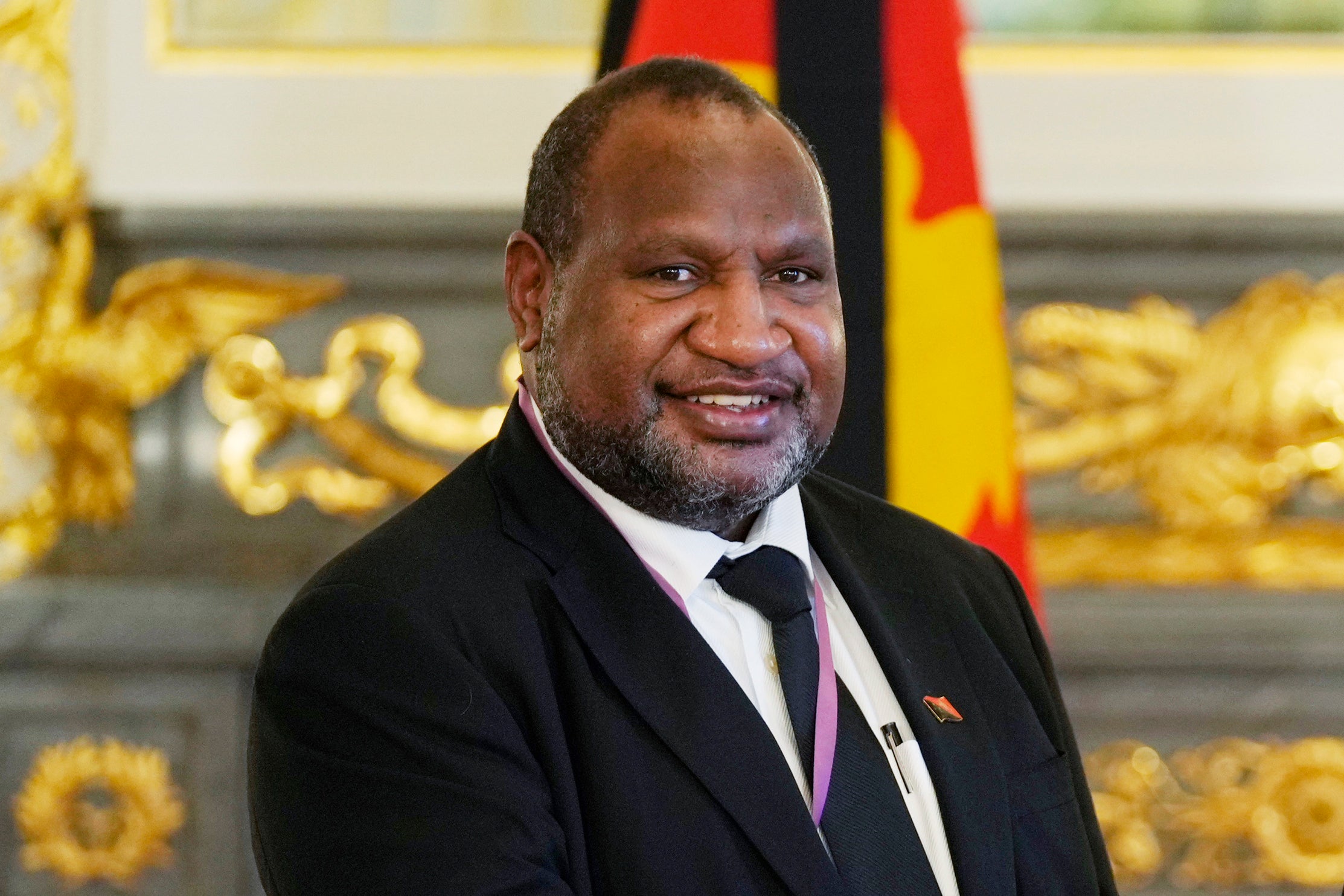Papua New Guinea says security treaty with Australia has been delayed over certain provisions
Papua New Guinean Prime Minister James Marape says a proposed security treaty with Australia has been delayed a week after the strategically important South Pacific Island nation signed a new security pact with the United states that sparked protests

Your support helps us to tell the story
From reproductive rights to climate change to Big Tech, The Independent is on the ground when the story is developing. Whether it's investigating the financials of Elon Musk's pro-Trump PAC or producing our latest documentary, 'The A Word', which shines a light on the American women fighting for reproductive rights, we know how important it is to parse out the facts from the messaging.
At such a critical moment in US history, we need reporters on the ground. Your donation allows us to keep sending journalists to speak to both sides of the story.
The Independent is trusted by Americans across the entire political spectrum. And unlike many other quality news outlets, we choose not to lock Americans out of our reporting and analysis with paywalls. We believe quality journalism should be available to everyone, paid for by those who can afford it.
Your support makes all the difference.Papua New Guinean Prime Minister James Marape said a proposed security treaty with Australia has been delayed over “certain wordings and provisions,” a week after the strategically important South Pacific Island nation signed a new security pact with the United States that sparked protests.
Marape informed Australian Deputy Prime Minister Richard Marles of the delay on Monday on the sidelines of an international forum in South Korea, the Papua New Guinean leader’s office said in a statement Tuesday.
Marape told Marles, who is also defense minister, that the treaty is a “work in progress and required the PNG side to consult our domestic processes and sovereign laws in relation to certain wordings and provisions,” the statement said.
Marape “conveyed his apologies” to Prime Minister Anthony Albanese for the delay, the statement said.
In January, the two leaders pledged in a joint statement to conclude substantive negotiations on the treaty by the end of April.
The treaty, which would enhance security cooperation and acknowledge that the neighboring nations “share a mutual strategic interest in a safe, stable, peaceful, and prosperous Indo-Pacific,” was expected to be signed in June.
Marape told Marles that Papua New Guinea “in no way would compromise its excellent existing bilateral relations with Australia,” its most generous aid donor, the statement said.
Marles did not immediately respond to a request for comment Tuesday.
Australia and the United States are working to counter China’s increasing influence in South Pacific nations including Papua New Guinea.
Papua New Guinea’s location just north of Australia makes it strategically significant. It was the site of fierce battles during World War II, and with a population of nearly 10 million people, is the most populous Pacific Island nation.
U.S. Secretary of State Antony Blinken flew to the Papua New Guinean capital, Port Moresby, last week to sign a new bilateral agreement. The State Department said the pact provides a framework to improve security cooperation, enhance the capacity of Papua New Guinea’s defense force and increase regional stability. The full agreement will be made public once politicians in both countries have an opportunity for input, likely in a couple of months.
Last week, Marape said the pact is mutually beneficial and “secures our national interests” in “becoming a robust economy in this part of the world.”
But the agreement sparked student protests in the second-largest city, Lae. And many in the Pacific are concerned about the increasing militarization of the region.